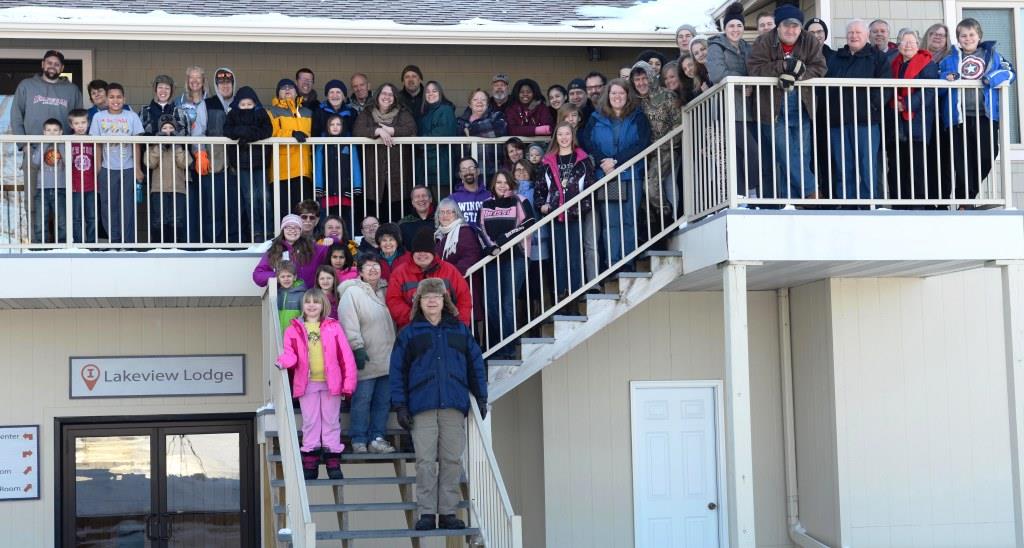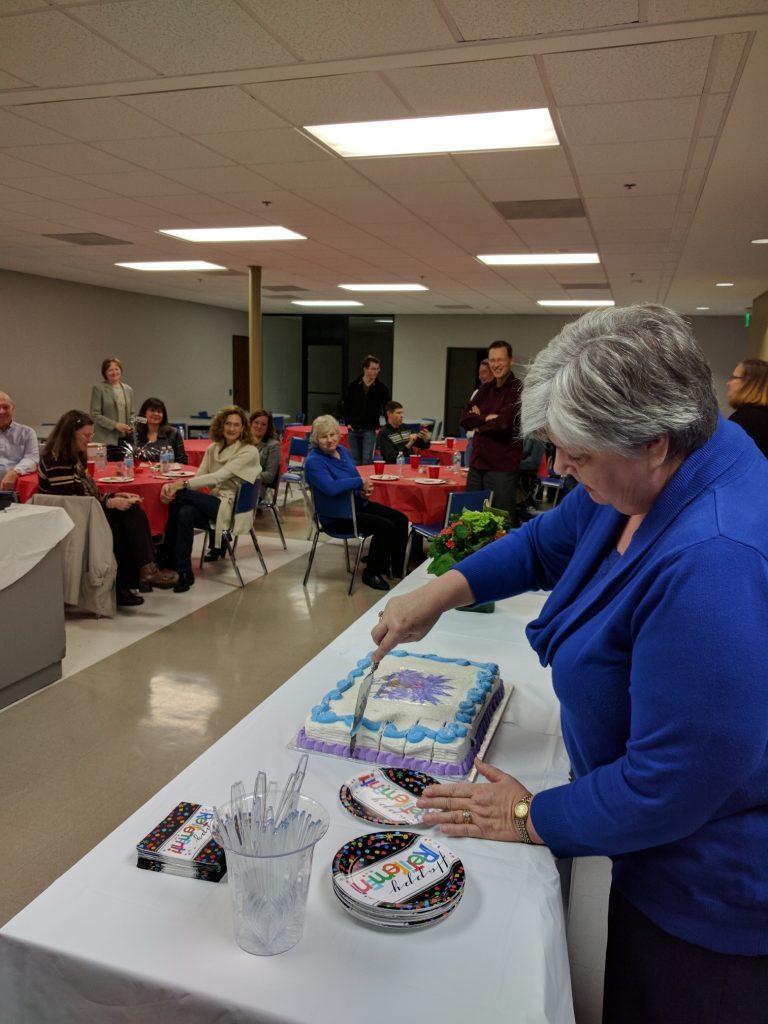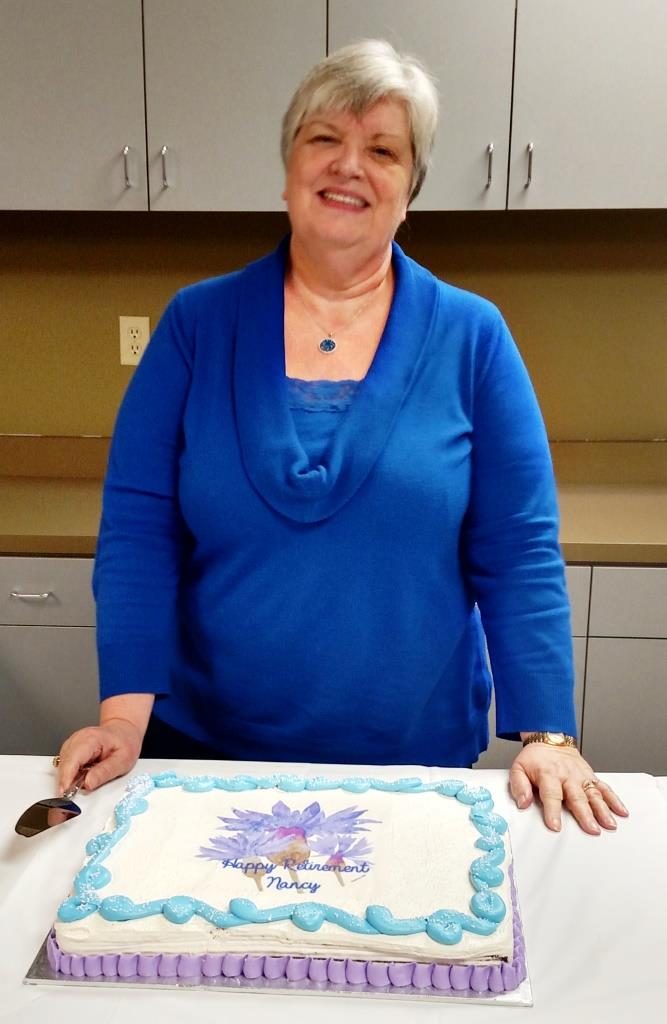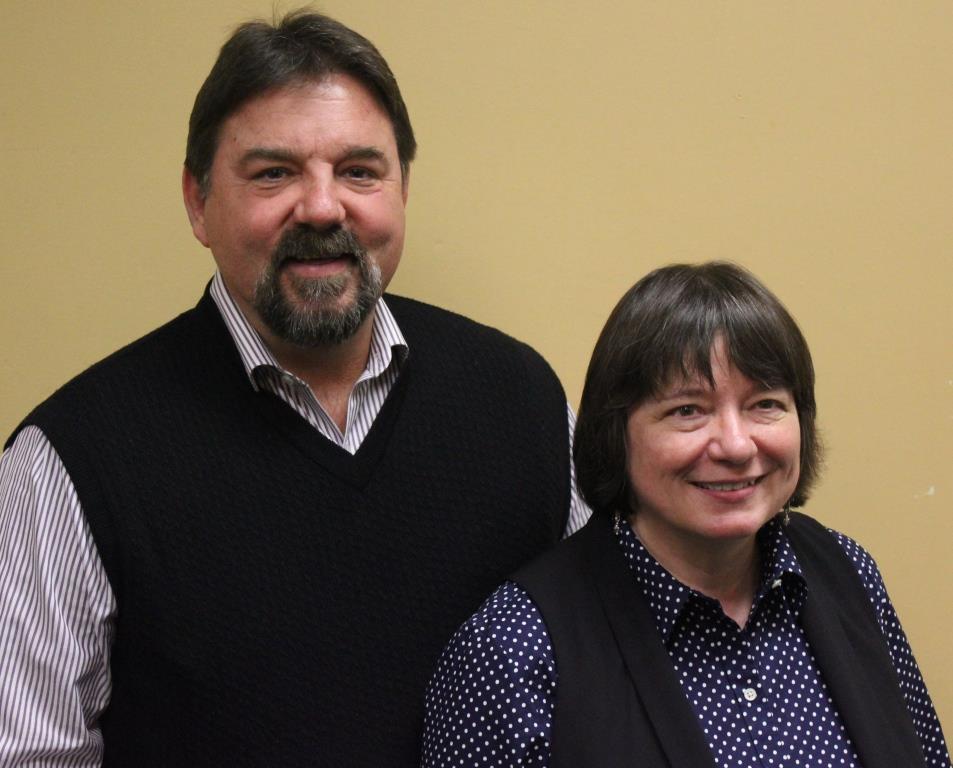Dear Brothers and Sisters,

In GCI, our high view of the Bible aligns with Jesus’ declaration concerning the Hebrew Scriptures: “These are the very Scriptures,” he said, speaking of what we refer to as the Old Testament, “that testify about me” (John 5:39). Believing that Jesus is God’s self-revelation to humanity, it is our commitment and practice to follow this important teaching from our Lord, reading the Bible through what we might refer to as the interpretive lens of Jesus Christ. Doing so means reading Scripture in a way that both prepares us for Jesus, then leads us to him as the Bible’s intended ultimate fulfillment. Unfortunately, not everyone follows this Christ-centered method of biblical interpretation, instead often falling into one of two ditches as I’ll now explain.

Ditch one: Viewing Scripture as outdated and thus irrelevant
The first ditch involves the erroneous belief that Scripture, being ancient, is not relevant in our modern era. With this perspective, Scripture is seen as “past truth,” “dusty truth” or a bunch of “old love letters.” People fall into this ditch when they fail to understand that the Holy Spirit inspired the writing of the Bible in a way that makes it relevant in all times (including our own). They also fail to understand that the Spirit works in all times to illuminate the understanding of the believing and worshiping church so that it can discern the application of Scripture in its time. In GCI, we believe that the Bible, being timeless, has relevance for all people in all times. As God’s gift to humanity, it is authoritative, compassionate and reliable, providing wise instruction in good and right living (relationships). As we trust in that gift, and in the Spirit’s ongoing work of illuminating our minds to receive it, we will avoid the ditch of believing that the Bible is an irrelevant relic of the past—a false belief that leads to confusion, speculation and captivity to the prejudices of our current time.
Ditch two: Idolizing Scripture (bibliolatry)
The second ditch people fall into is called bibliolatry (or biblio-idolatry). This error turns the Bible into an idol by elevating it to a level not intended by God. It seems that Jesus had this error in mind in John 5:39-40: “You study the Scriptures diligently” he said, “because you think that in them you have eternal life. These are the very Scriptures that testify about me, yet you refuse to come to me to have life.”
Reading Scripture apart from the “interpretive lens” of Jesus’ person, life and work leads to multiple errors of interpretation including ones that justify blatantly un-Christian behavior. For example, some people neglect their God-given responsibilities toward society in a belief that Christ’s soon return will take care of the problems of society. Such errors arise when Scripture is interpreted using self-contrived methods that impose meanings on the Bible unrelated to what is conveyed by reading Scripture through the “lens” of Jesus. Those who fall into the ditch of idolizing Scripture transfer their trust in God’s gift of the Bible, and the working of the Holy Spirit in and through that gift, over to their own powers and methods of rational analysis. The result is an interpretation at odds with the character and purposes of God expressed to us in and through Jesus Christ.
Some will take my comments concerning bibliolatry as an attack on the idea of the primacy of Scripture (Sola Scriptura). But I am not demeaning the Bible, instead I am pointing out that it is a mistake to elevate the Bible (the written Word of God) to the point of seeing it as equal with Jesus, the Living Word of God. Here are three examples of that error:
- Several years ago, I explained to an unmarried church member that he should not greet everyone at church with “a holy kiss.” In his desire to “live by every word of God” (including 2 Corinthians 13:12), he was failing to understand that Paul was not issuing a mandate on how Christians should greet one another, but advocating the Christian use of a common custom of Paul’s day. That practice is not a cultural norm in North America in our day (though it’s still followed in some parts of the world). Paul’s instruction on this custom was like writing your married son and saying “Give your wife and children hugs and kisses from Grandma every day.” These are not general instructions for everyone in the church in all ages.
- Some use a verse or two of Scripture to claim we must always lift our hands when praying or singing in church. Though this practice can have deep personal meaning, that meaning is lost when the practice is mandated for all people—something Scripture does not do. The Bible gives multiple examples of positions in prayer including standing (1 Kings 8:22-23; Luke 18:10-14; Mark 11:25); sitting (Nehemiah 1:4); kneeling (Luke 22:41; Acts 9:40; 20:36; Daniel 6:10); bowing (Ezra 10:1; Psalm 95:6); lying prostrate (Numbers 16:22; 1 Chronicles 21:16-17; Matthew 26:39); lifting hands (1 Kings 8:54; 2 Chronicles 6:12-13; Ezra 9:5; Lamentations 2:19; Psalm 28:2; 141:2; 1 Timothy 2:8); looking upward (John 17:1); downcast eyes (Luke 18:13); and being adorned in sackcloth and ashes with fasting (Psalm 35:13-14; Daniel 9:3). When we look at all the biblical data, we find that there is no mandate for a particular position.
- Some insist that the Hebrew language must be used when we speak or write the names of God (this is typically referred to as the “sacred names” teaching). There are various problems with this teaching. First, there are no manuscripts of the Bible in Hebrew that are older than Dead Sea Scrolls. Second, in the New Testament, which was originally written in Greek (with a few passages in Aramaic), God’s name in Hebrew (Yahweh) is translated into the Greek words Kyrios (Lord) or Theos (God). These Greek (non-Hebrew) names are then used in quoting Jesus speaking about God. Given these facts, and in the absence of any biblical verse telling us otherwise, it is clear that there is no justification for claiming we must use the Hebrew names for God.
A Christ-centered approach to biblical interpretation does not support bibliolatry in any way. It does not view the Bible in any sense as on par with (equal to) God. The Bible, which has a derivative authority, does not have more authority than Jesus—unlike Jesus, the Bible does not forgive our sins or raise us from the dead. Therefore we do not pray to the Bible or in any other way worship it. When we read Scripture through the lens of Jesus, we see that it has a limited (though very important) scope. It does not contain all of God’s eternal knowledge (as does Jesus). And while the Bible gives us principles that apply to all situations in life, it does not explicitly give us all the information on every subject we need for daily living. For example, it does not tell us to brush our teeth, eat a balanced diet, whether or not to drive a car, or what kind of clothing to wear.
Bibliolatry typically involves a strict, woodenly literalistic approach to interpreting Scripture—seeking to get it to speak authoritatively to every conceivable topic. This practice distorts what is essential and central to the purpose of God’s gift of Holy Scripture, namely to reveal to us who God is, and who we are in relationship to him. In that context, it also reveals ethical principles concerning how we are to relate to one another. These principles, like all that Scripture declares, are fulfilled in Jesus Christ who directs us to the shape of the life we are to live as members of his Body under the new covenant. In short, the purpose of Holy Scripture is to reveal to us the triune being (love) and doing (loving) of God incarnate in Jesus Christ, along with our proper responses involving loving God (with all we are and have), then passing on that love to others, our neighbors.
Bibliolatry fails to distinguish between the authoritative sign (witness) and its source (author). We see this distinction when John the Baptist (sign/witness) points away from himself to Jesus (Source). Jesus the eternal, incarnate Son of God, is the Living Word (Source) and the Bible is the written Word (sign/witness). The written Word is authored by and points to the Living Word. The Living Word authorizes the written Word. Our relationship with the Living Word will necessarily lead to following what is revealed in the written Word—indeed, that is its designed purpose.
Conclusion
Though the Bible is our authoritative and irreplaceable connection to God, we worship God, not the connection. This is what Jesus was attempting to teach the scribes and Pharisees. While they likely knew the Hebrew Scriptures well, in saying to them, “you don’t know me or my Father” (John 8:19), Jesus was making it clear that we must distinguish the written Word of God from the Living Word of God, but not in ways that would separate them (as some erroneously do). God has joined the sign/witness and the Source and instead of pulling them apart, we must keep them together in proper relationship.
Practices that spring from bibliolatry (like mandating a holy kiss, hands lifted in prayer, or use of Hebrew in speaking God’s name) do not make us more “spiritual.” Our focus must be on what the Bible was written for: to help us know and then abide in a relationship with the triune God. We are spiritually alive as we live in communion with the Father, Son and Holy Spirit. That communion involves a life in which God knows our thoughts, and we embrace his revelation to us of his nature, seen in the person of Jesus. This communion with God, through Christ, by the Spirit is both the source and the content of true spirituality. The Bible, then, is God’s gift to lead us to and within that communion.
Thankful for the Bible, rightly understood,
Joseph Tkach
PS: To learn more about this topic, check out these GCI resources:
- For a You’re Included interview in which Mike Feazell interviews Jeff McSwain, click here.
- For a review from Terry Akers of the book, How to Read the Bible for All Its Worth by Gordon Fee and Douglas Stuart, click here.










